
Tek Tıkla Ödeme Nedir E-Ticarette Dönüşüm Oranlarını Artırmanın Yeni Yolu
Tek Tıkla Ödeme Nedir E-Ticaret’te Dönüşüm Oranlarını Artırmanın Yeni Yollarını Keşfedin...
Geleneksel ödemelerden açık bankacılığa finansal serbestleşme nedir ve neden önemlidir öğrenmek için blog yazımıza göz atın!

Buharlı makinenin icadından sonra hızla gelişen teknoloji, devletler ve insanlar arasındaki mesafeleri yok ederek küreselleşmeyi hızlandırmıştır. Küreselleşen dünya, internetin ve yapay zekanın da sisteme dahil olmasıyla ödeme yöntemlerinde de hızlı bir değişime yol açmaktadır. Bireylerin ve tüzel kişiliklerin ödemelerinde kolaylık sağlayan inovasyonlar, devletlerin regülasyonları sayesinde gerekli izinleri alan kurumlar tarafından akıllı cihazların tümüne ulaştırılır. Birleşik Krallık öncülüğünde, Avrupa Birliği'nin başat rol üstlenmesiyle yapılan PSD2 (Payment Services Directive 2-Ödeme Hizmetleri Direktifi 2) düzenlemeleri; ödeme yapılan kurumların da çoğalmasına yol açarak kullanıcılara çeşitlilik imkânı tanır. Ödemelerle ilgili hizmetlerin serbestleşerek kullanıcıya ulaşması, devletlerin para politikalarında desteklediği bir yöntem olarak geleneksel bankacılıktan açık bankacılığa geçiş sürecini de başlatmaktadır.
Dijitalleşmenin insan hayatına getirdiği en büyük yeniliklerden olan açık bankacılık; kişisel finans datalarınızı değerlendirip size daha kaliteli çıktılar ve olasılıklar sunan üçüncül kuruluşların verdiği hizmetler bütünüdür. Finansal teknoloji işletmeleri tarafından sağlanan bu hizmet, ödemeleri hızlandırarak çeşitlendirir ve daha serbest opsiyonlar sunar. Finansın merkezi olan Birleşik Krallık'ta ilk kez tartışmaya açılan kavram; bankacılık sektörüne dijitalleşen dünyanın yeniliklerini entegre ederek, rekabet ve fırsat eşitliğini sağlamayı amaçlar. Avrupa Birliği'nin de düzenleyici kurumlarla PSD2 adıyla sunduğu bu yönerge, açık bankacılık sisteminin atasıdır. Açık bankacılık; özgürlüğü, güvenilirliği, daha sağlıklı bir yapıyı, şeffaflığı ve belki de en önemlisi kullanım kolaylığını sunarak API teknolojisini hayatınıza dâhil eder. API teknolojisi; gelişmiş arayüzler kullanarak finansa dair uygulamalarınızı, bankacılık işlemlerinizi ve bankacılık sistemiyle yapılan tüm işlemleri tek bir potada toplar ve tüm komutlarınızı, aracılara gerek kalmadan, tek ekran üzerinden gerçekleştirmenizi sağlar. API, kişisel verilerin paylaşılmasına izin vermeniz halinde, banka dışı kuruluşların size uygun hizmetleri belirleyerek sunmasına da olanak tanır.
Finansal tüm işlemlerin tek bir ekranda toplandığı ve ödemelerin özgürleştiği sistem, devletlerin regülasyon çalışmaları sonucu finansal serbestlik tanır. Çeşitlilik ve tam bir kontrol imkânı tanıyan dijitalleşme çağı, ödemelerde etkin bir hız sağlar. Finansal teknoloji firmalarının geleneksel bankacılığa göre yeniliklere daha açık ve dinamik yapısı, dijitalleşmenin olduğu her alanda daha seri bir şekilde uzmanlaşmaya olanak tanır. Bu durum da ödeme yapma ve almada kişinin daha kaliteli bir hizmet almasını, işlemlerin daha özgür ve hızlı gerçekleşmesini sağlar. Dijitalleşme çağının en önemli beklentilerinden olan güvenlik konusu, ülkemizde ise 6493 sayılı kanun sayesinde gereken güveni kullanıcılara sunar. Veri politikaları ülkemizde ve dünyada PSD2 düzenleme esasları baz alınarak oluşturulur ve kişisel bilgiler veri tabanında güvenle saklanır. Belirtilen tüm girdilerin "Core" ve yapay zeka tabanlı algoritmalarda işlenmesi, finansal işlemlerinizi hem özgürleştirir hem de güvenli kılar.
Ödemeleri özgürleştiren finansal teknoloji; adından da anlaşılacağı üzere finans ve teknolojinin bir kalemde toplanarak kullanıcılara kolaylık, hız ve güvenlik hizmetlerini en inovatif bakış açısıyla sunmasıdır. İnternet ve akıllı mobil cihazların kullanımının giderek artması, finans alanındaki değişimi çağımız için zorunlu kılmaktadır. Her geçen gün artan sayılarıyla finans teknolojisi şirketleri, tüm ödeme işlemlerinde özgürlüğü çeşitlilik ve hız ile harmanlar. Ödemelerin kolaylaşarak özgürleştiği, işlemlerin daha hızlı gerçekleştiği finansal teknoloji ekosistemi ve açık bankacılıkta siz de yerinizi almak isteyebilirsiniz. Bu sayede geleneksel bankacılığın katı bürokrasinden kurtularak, ödemelerde esneklik fırsatı sağlayan bir geleceğin kapısından içeri adım atabilirsiniz. Türkiye'nin en büyük dijital ödeme platformu olan Lidio ile ödemelerinizi çeşitlendirebilir, tek bir ekrandan tüm para akışınızı kolaylıkla kontrol edebilirsiniz.

Tek Tıkla Ödeme Nedir E-Ticaret’te Dönüşüm Oranlarını Artırmanın Yeni Yollarını Keşfedin...
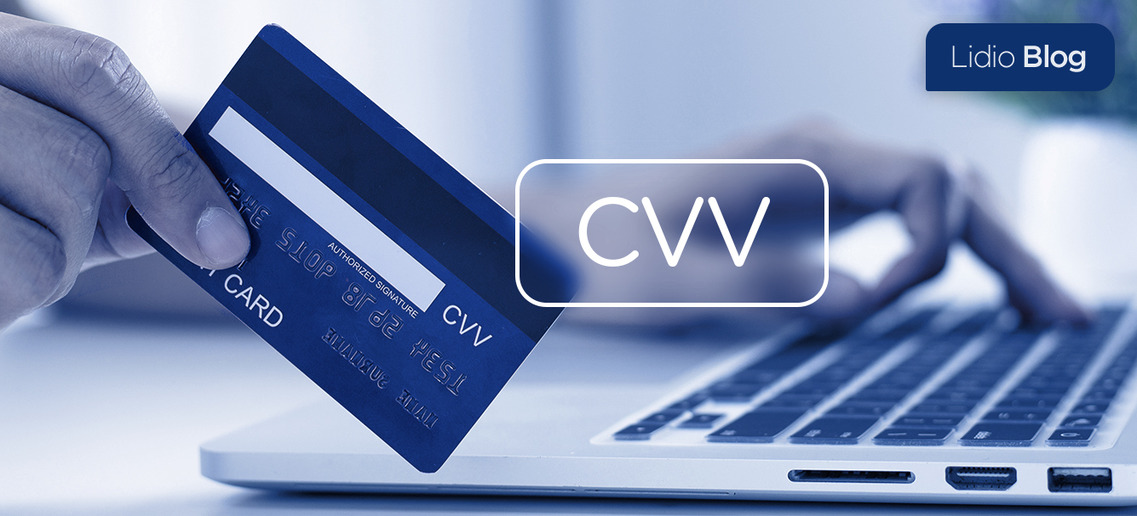
CVV Kodu Nedir? Neden önemlidir? Öğrenmek için blog yazımızı zirayet edin!...

Provizyon Nedir? Provizyon Ne İçin Kullanılır? Öğrenmek için blog yazımızı ziyaret edin!...
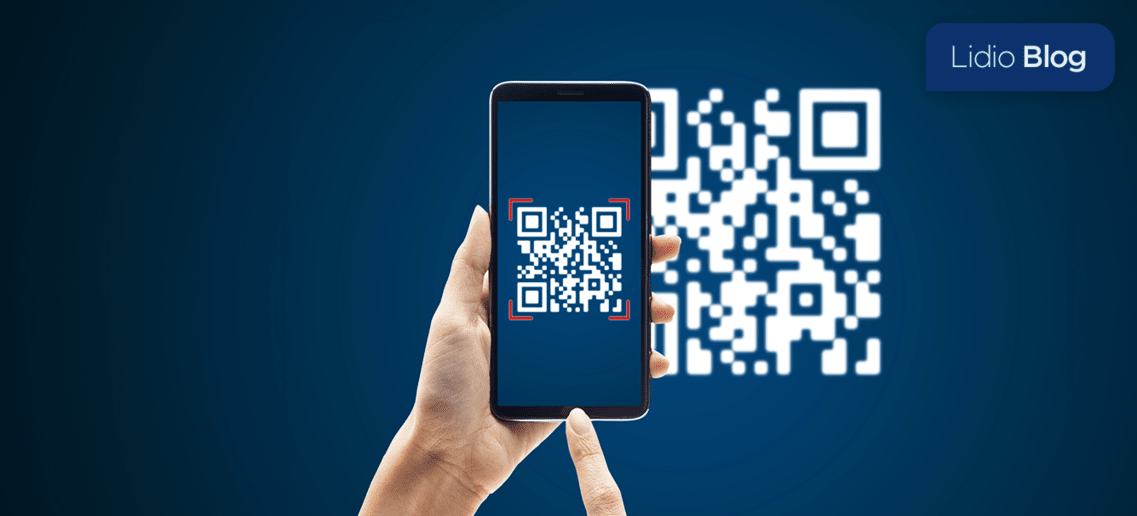
QR Kod Nedir? QR Kod Ne İçin Kullanılır? Öğrenmek için blog yazımızı zirayet edin!...

Linkle ödeme nedir, linkle ödeme sistemi nasıl çalışır, avantajları nelerdir, ve linkle ödeme nasıl alınır merak ediyorsanız detaylı bilgi için blog yazımızı okuyun!...

Ödeme sistemleri, online mağazalarınızda müşterilerinizden ödeme almak için kullanılan finansal teknolojilerin tümüne verilen addır. Detaylı bilgi için web sitemizi ziyaret edin!...
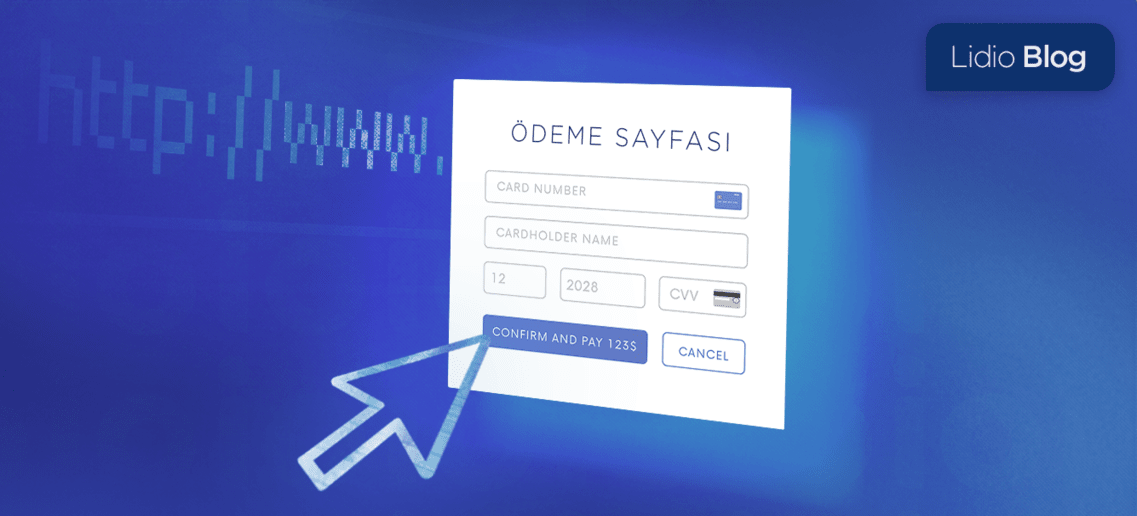
Ödeme sayfası nedir, sayfa güvenliği nasıl anlaşılır, ödeme sürecinin güvenli olduğundan emin olma yolları nelerdir hakkında detaylı bilgi için blog yazımızı okuyun. ...

Startup Nedir? Startup nasıl kurulur öğrenmek için blog yazımızı zirayet edin!...
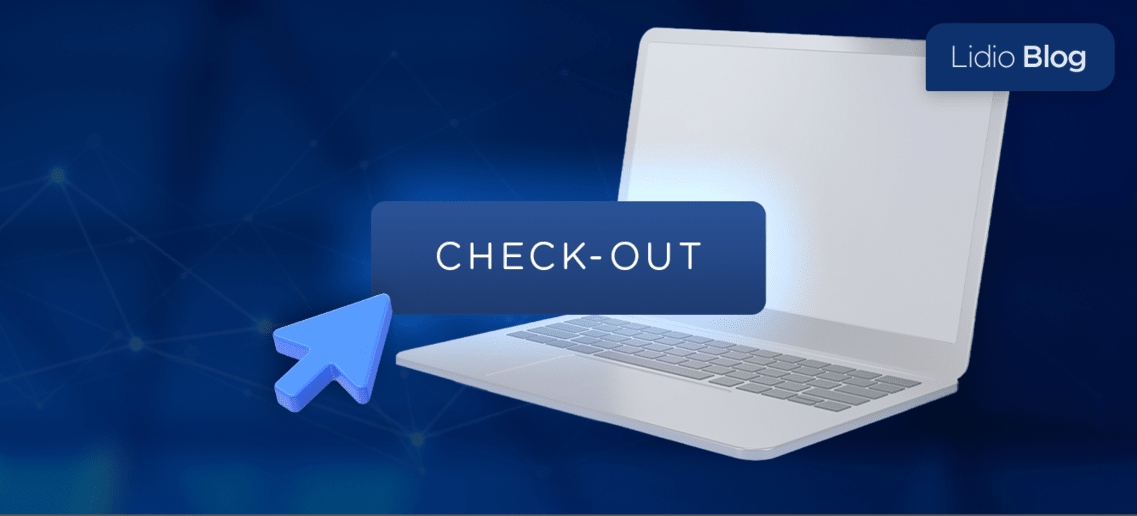
Check Out Nedir? Neden önemlidir öğrenmek için blog yazımızı zirayet edin!...
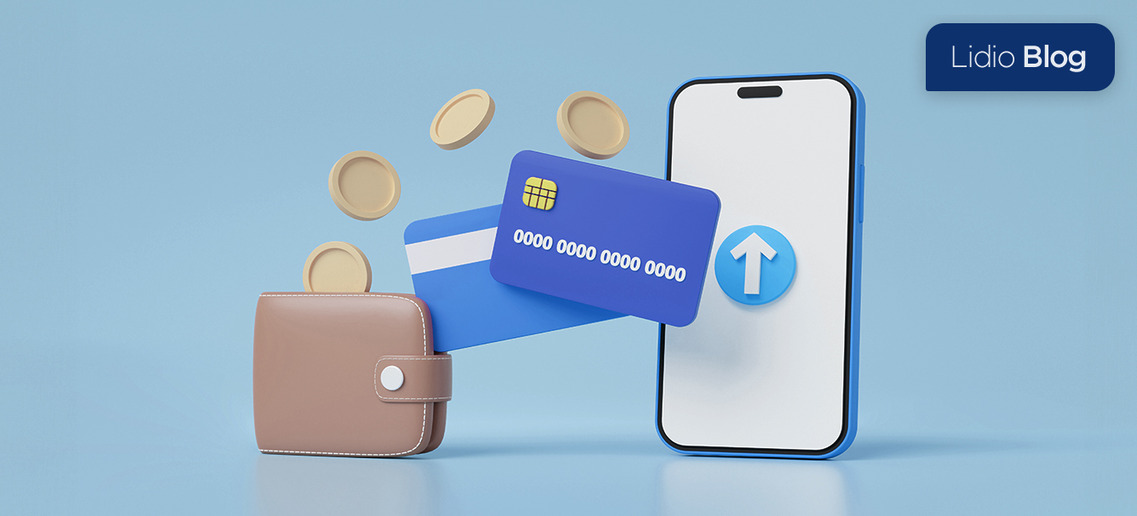
Dijital Cüzdan Nedir? ? Neden önemlidir öğrenmek için blog yazımızı zirayet edin!...
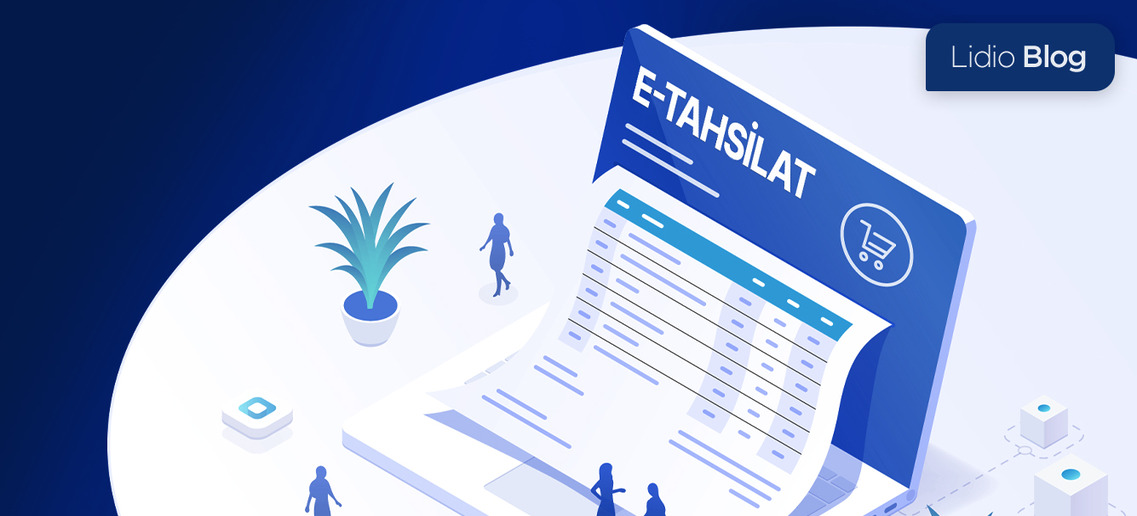
E-Tahsilat Nedir? E-Tahsilat Ne İçin Kullanılır? Öğrenmek için blog yazımızı zirayet edin!...

İnternet alışverişinde tüketicilerin hakları nelerdir, kabul edilen sözleşmeler neyi ifade eder detayları ile öğrenmek için blog yazımıza göz atın!...

Sanal POS hakkında tüm bilmeniz gerekenler: Öğrenmek için blog yazımıza göz atın!...

Sepeti terk etme oranları işletmeler için neden önemlidir, nasıl minimize edilir öğrenmek için blog yazımıza göz atın!...

Geleneksel ödemelerden açık bankacılığa finansal serbestleşme nedir ve neden önemlidir öğrenmek için blog yazımıza göz atın!...

Uluslararası ödemeler nasıl gerçekleştirilir, hangi yöntemler kullanılır öğrenmek için blog yazımıza göz atın!...

Ödeme alma sürecinde tahsilatları tek ekrandan yönetmek işletmelere ne gibi avantajlar sağlar öğrenmek için blog yazımıza göz atın!...

ERP nedir, POS ve hesap hareket takibi nasıl yapılır öğrenmek için blog yazımıza göz atın!...

Issuer, Acquirer ve PSP kavramları nelerdir, PSP seçimi neden önemlidir öğrenmek için blog yazımıza göz atın!...

İnternetten yapılan alışverişlerde dolandırıcılığa karşı kullanılan güvenlik önlemleri nelerdir öğrenmek için blog yazımıza göz atın!...

E-ticarette online satış yapmanın püf noktaları nelerdir, tüketici deneyimi nasıl iyileştirilir öğrenmek için blog yazımıza göz atın!...
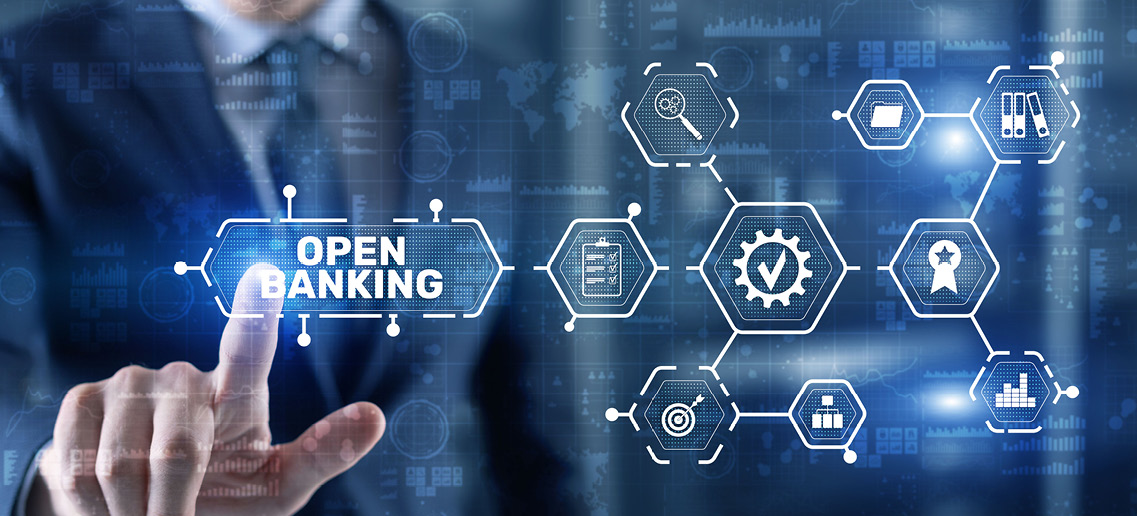
Açık bankacılık nedir, işletmelere nasıl avantajlar sağlar öğrenmek için blog yazımıza göz atın!...

Güvenli online alışverişin şifresi: 3D Secure Ödeme nedir, ne işe yarar öğrenmek için blog yazımıza göz atın!...

Kredi kartı, kapıda ödeme, havale/kredi, mobil ödeme gibi alternatif ödeme yöntemleri nelerdir, nasıl kullanılır öğrenmek için blog yazımıza göz atın!...